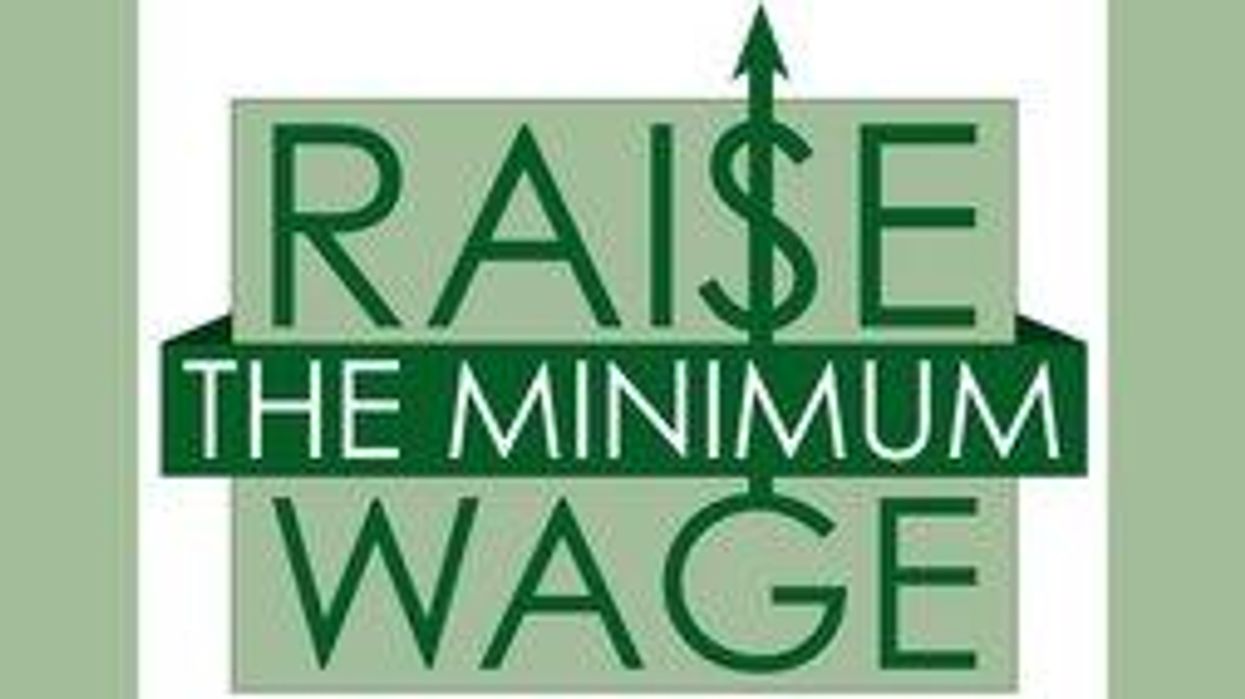'Not Enough': Critics say Obama's $9 Minimum Wage Too Small
Sen. Tom Harkin (D-Iowa) and Rep. George Miller (D-Calif.) say $10.10 is closer to liveable wage
President Obama's call for a national increase of the minimum wage to $9 an hour is a practical nonstarter among conservatives and Republicans.
But advocates of a higher and more decent, living wage--including members of Obama's own party--say that an adequate increase would bring hourly pay up to $10, at least.
This week, Sen. Tom Harkin (D-Iowa) and Rep. George Miller (D-Calif.) announced plans to introduce legislation that would set the number at $10.10, though progressive consumer advocates and economists say that $10.50 would be the level needed to bring wages back up, in relative terms, to where the minimum wage was in 1968.
"We're going to introduce our own bill on [the minimum wage]," Harkin told The Hill this week, saying that the White House goofed in their low-balling of the number.
"I'm going to be in discussions with them because I think they missed the mark," Harkin said. "But people make mistakes."
Supporters of a higher wage say that repeated Republican claims that better wages hurt the employment rate find no evidence to support their rhetoric.
As John Schmidtt, a senior economist at the Center for Economic and Policy Research, recently noted: "Congressional proposals to raise the minimum wage to above $10 per hour or President Obama's call for a minimum wage of $9 per hour are well within the range of historical increases and would still leave low-wage workers behind reasonable historical benchmarks based on cost-of-living or productivity growth."
And Schmitt's colleagues at CEPR, Dean Baker and Will Kimball, argue that because the link between productivity growth and minimum wage ended in the 1970s, "If the minimum wage had kept pace with productivity growth it would be $16.54 in 2012 dollars."
As consumer advocate Ralph Nader wrote recently:
Catching up with a 1968 federal minimum wage of $10.50, inflation adjusted, should be a winnable goal this year. Once the media starts regularly reporting on the human consequences of unlivable wages, and once the entry of more and more of the thirty million workers to marches, rallies and town meetings grows, neither the Republicans nor the Blue Dog Democrats will be able to stop this drive. Congressional districts all have many such workers in their districts and polls show 70 percent popular support for raising the minimum wage. That includes millions of workers who call themselves conservatives.
The Hill reports:
Harkin argues Obama himself called for a $9.50 minimum wage in his 2008 presidential campaign.
He and Miller plan to unveil their bill in a matter of weeks, according to aides. Harkin also says he's begun negotiating with the White House about where to set the rate. Harkin aides insisted the senator would not budge from introducing a minimum wage increase bill at $10.10 an hour.
"It will be introduced at $10.10," one of these aides said.
Rangel, who co-sponsored a bill in 2012 to raise the minimum wage to $10, said he was thankful that Obama is making an increase a priority, but that the number could be higher.
"No, no, no," Rangel said when asked if $9 an hour was sufficient to raise the minimum wage. "But this is so much better than not having his support."
The last increase to the minimum wage came in 2007, when Congress increased it from $5.15 to $7.25 per hour.
But in an recent interview with Bill Moyers, economist Richard Wolff explains how even the current minimum wage offers less advantage for workers than it did decades ago, and says that a new increase would benefit not only low-wage employees, but the overall US economy.
"You've taken the folks at the bottom--the people who work hard, full-time jobs--and you've made their economic condition worse over a 50-year period, while wealth has accumulated at the top," Wolff told Moyers. "What kind of a society does this?"
